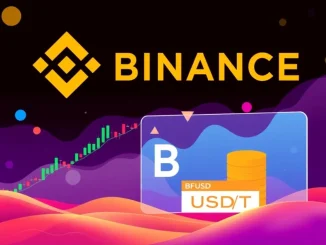
Is South Korea’s cryptocurrency landscape on the verge of a seismic shift? Recent reports indicate that government authorities are taking a closer look at the market share commanded by Upbit, the nation’s leading crypto exchange. With Upbit reportedly controlling nearly 70% of the South Korean crypto exchange market, concerns about fair competition and potential monopolization are escalating. Let’s dive into what this means for the future of crypto in South Korea and beyond.
Why is Upbit’s Market Dominance a Hot Topic in South Korea?
For any market, especially one as dynamic and rapidly evolving as cryptocurrency, a healthy level of competition is crucial. When one player holds a lion’s share, like Upbit’s reported 70% grip on the South Korean exchange market, it raises several red flags. Here’s a breakdown of why this dominance is sparking government attention:
- Reduced Innovation: Lack of strong competition can stifle innovation. When one exchange dominates, there’s less pressure to constantly improve services, lower fees, or introduce groundbreaking features. This can ultimately hinder the overall progress and user experience within the South Korean crypto market.
- Potential for Unfair Practices: Market dominance can, in some cases, lead to unfair practices. While there’s no suggestion of wrongdoing by Upbit, regulators are likely keen to ensure a level playing field and prevent any potential abuse of market power that could disadvantage users or smaller exchanges.
- Systemic Risk: Over-reliance on a single exchange can introduce systemic risk into the crypto ecosystem. If a dominant exchange faces operational issues, security breaches, or regulatory challenges, the impact on the entire market could be amplified.
- Limited Consumer Choice: When one exchange overshadows others, consumers may have fewer choices in terms of trading platforms, available cryptocurrencies, and specific services. A diverse market ideally offers users a range of options to suit their individual needs and preferences.
Government Action: FSC and KFTC Join Forces to Address Crypto Exchange Monopoly
According to Decenter reports, the South Korean government isn’t sitting idly by. The Financial Services Commission (FSC) and the Korea Fair Trade Commission (KFTC), two key regulatory bodies, have reportedly initiated discussions to explore measures aimed at tackling this market concentration. This collaborative approach signals the seriousness with which the government is treating this issue.
A government official has confirmed that meetings have taken place, indicating that both the FSC and KFTC are actively working within their respective mandates to identify potential solutions. While the specifics of these discussions remain under wraps, it’s clear that the focus is on fostering a more competitive and balanced crypto exchange landscape in South Korea.
What Measures Could Be Considered to Encourage Crypto Market Competition?
It’s still early days in terms of concrete actions, but we can speculate on potential measures that the South Korean government might consider to promote greater competition in the crypto exchange market. These could include:
- Stricter Scrutiny of Market Practices: Regulators could intensify their monitoring of all crypto exchanges, ensuring fair practices and preventing anti-competitive behaviors. This might involve closer examination of fee structures, trading practices, and market-making activities.
- Lowering Barriers to Entry: Making it easier for new crypto exchanges to enter the market could naturally increase competition. This might involve streamlining the licensing process or providing clearer regulatory guidelines for new entrants.
- Promoting Interoperability: Encouraging interoperability between different crypto exchanges could reduce user dependence on a single platform. If users can easily move assets and information between exchanges, it can foster a more dynamic and competitive environment.
- Incentives for Smaller Exchanges: The government might consider offering incentives or support programs specifically designed to help smaller crypto exchanges grow and compete more effectively. This could include grants, tax breaks, or access to resources.
The Global Context: Crypto Regulation and Market Concentration
South Korea is not alone in grappling with the challenges of crypto regulation and market concentration. Globally, regulators are increasingly paying attention to the power dynamics within the cryptocurrency industry. Concerns about monopolization, consumer protection, and financial stability are driving regulatory conversations around the world.
Many jurisdictions are exploring various approaches, ranging from stricter licensing requirements to enhanced consumer protection measures and frameworks to address market manipulation. The actions taken by South Korea will be closely watched internationally, as they could set a precedent for how other nations approach similar issues in their own crypto markets.
Actionable Insights: What Does This Mean for Crypto Users and Investors?
While regulatory discussions are ongoing, here are some actionable insights for crypto users and investors to consider:
- Stay Informed: Keep abreast of developments in South Korean crypto regulation. Follow reputable news sources and regulatory announcements to understand how potential changes might impact the market and your investments.
- Diversify Your Exchange Usage: Consider using multiple crypto exchanges rather than relying solely on one platform. This can mitigate risks associated with any single exchange and provide access to a wider range of cryptocurrencies and services.
- Understand Exchange Fees and Practices: Familiarize yourself with the fee structures and trading practices of different exchanges. Competition can lead to more favorable terms for users, so being informed can help you make optimal choices.
- Support a Competitive Market: By being aware of market dynamics and advocating for fair competition, users can contribute to a healthier and more vibrant crypto ecosystem.
Conclusion: Navigating the Future of South Korean Crypto
South Korea’s proactive approach to addressing Upbit market dominance signals a maturing phase for the nation’s cryptocurrency sector. The discussions between the FSC and KFTC are a crucial step towards ensuring a more balanced and competitive environment. While the specific outcomes remain to be seen, the government’s focus on fostering crypto market competition is a positive sign for the long-term health and sustainability of the industry. By tackling concerns related to crypto exchange monopoly, South Korea is demonstrating its commitment to responsible innovation and safeguarding the interests of both users and the broader financial system. As the situation unfolds, it will be vital to monitor the regulatory landscape and adapt to the evolving dynamics of the South Korean crypto regulation scene. The moves made now could profoundly shape the future trajectory of FSC KFTC crypto oversight and the overall crypto market not just in South Korea, but potentially globally.



